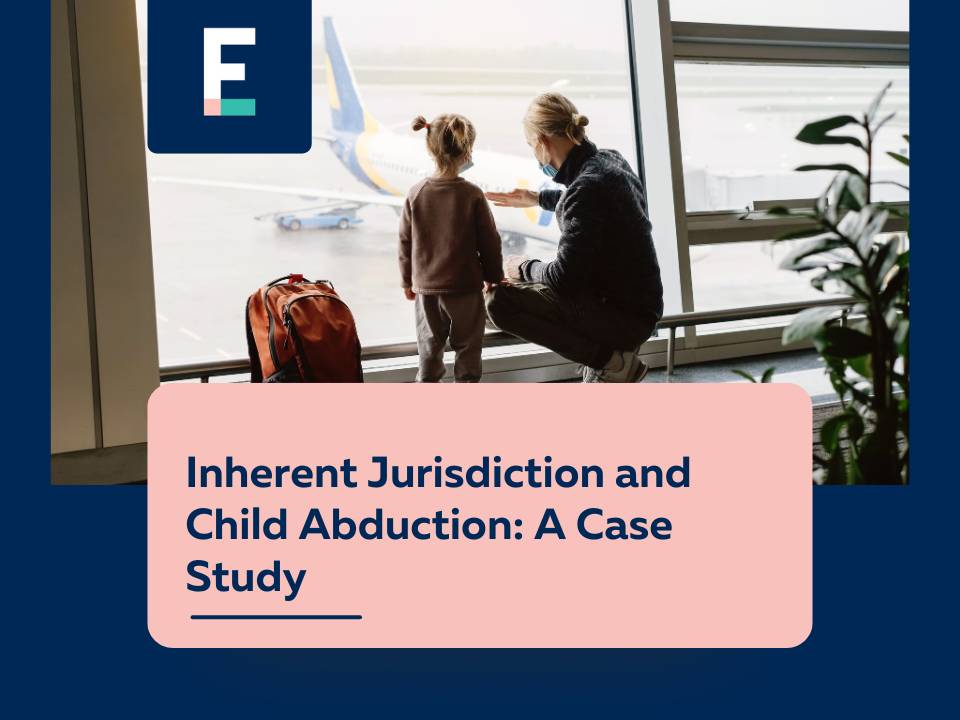Inherent Jurisdiction and Child Abduction: A Case Study
24th September 2025

24th September 2025


In the complex landscape of international child abduction, the invocation of inherent jurisdiction based on nationality can serve as a crucial legal tool. This article examines the recent High Court decision in ND v K EWHC 1548 (Fam), where the court invoked its inherent jurisdiction to secure the return of a child abducted from France to Nigeria.
The case involved a four-year-old child, L, who was born in France to ND, a Cameroonian national with refugee status. The father, K, held dual British and Nigerian nationality. The French court had granted ND custody of L, with contact to K. However, during his first overnight contact, K abducted L, taking him first to England and then to Nigeria, after obtaining a British passport for him. K was subsequently arrested in the UK, but L remained in Nigeria, where K's brother and sister-in-law were appointed as legal guardians based on false information provided to the Nigerian court.
ND applied to the High Court for a summary return order to France. The court, presided over by Hayden J, considered whether to invoke the inherent jurisdiction based on L's nationality to make a return order. Notably, Nigeria is not a signatory to the 1980 Hague Convention, nor is there a bilateral agreement between Nigeria and France, making legal action in France alone insufficient to ensure L's return.
Hayden J concluded that the inherent jurisdiction could be invoked based on L's nationality, referencing precedents such as Re B [2016] UKSC 4 and Re M [2020] EWCA Civ 922. The court recognised that L had been abandoned in a country alien to him, deprived of his mother's protection, and also of his father. The case was further complicated by the involvement of three jurisdictions and the fact that L was not being cared for by either biological parent.
The decision underscores the flexibility of English common law, which allows for the protection of children in complex international abduction cases. The inherent jurisdiction provides a mechanism to address situations where statutory schemes may not be applicable, particularly when dealing with non-signatory countries to the Hague Convention. However, it is important to note that invoking inherent jurisdiction does not guarantee the child's return to a third state. The court must carefully consider the most effective declarations and explore cooperation with foreign authorities to achieve the desired outcome.
The case of ND v K illustrates the potential of inherent jurisdiction to address the challenges of international child abduction. For clients facing similar situations, it is crucial to understand the legal principles involved and the potential avenues for securing a child's return. Legal practitioners must be prepared to navigate the complexities of multiple jurisdictions and work collaboratively with foreign authorities to protect the best interests of the child.

Why Choose Us?
Reasons why clients choose Fenton Elliott to represent them and get the results they expect.
More about us
Contact Us Today
If you are looking for employment or family law advice we can help. We will respond quickly to all enquiries.
Free enquiry